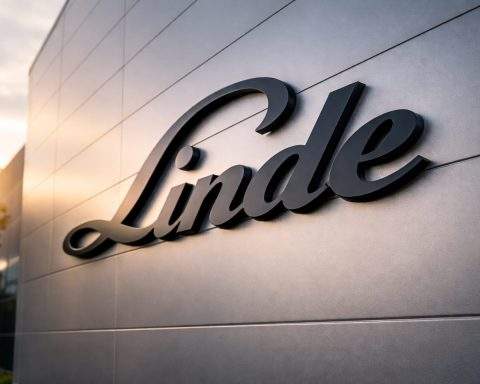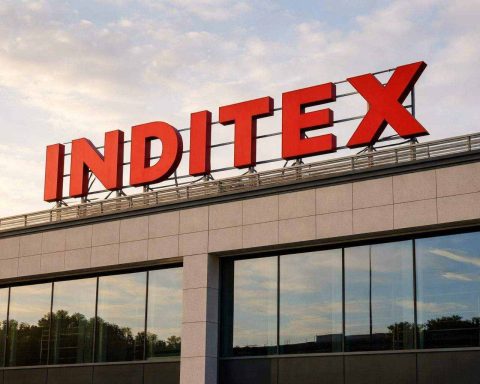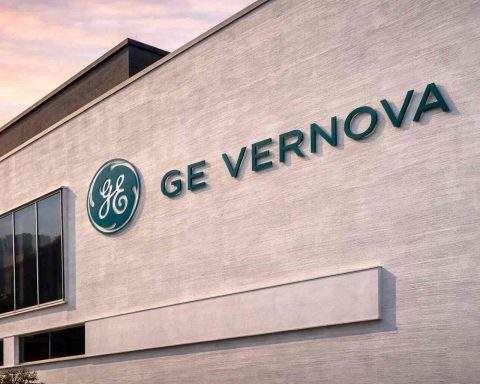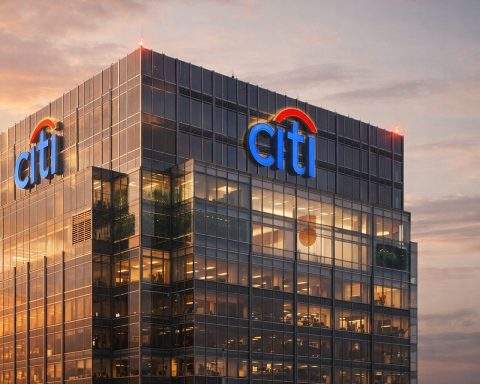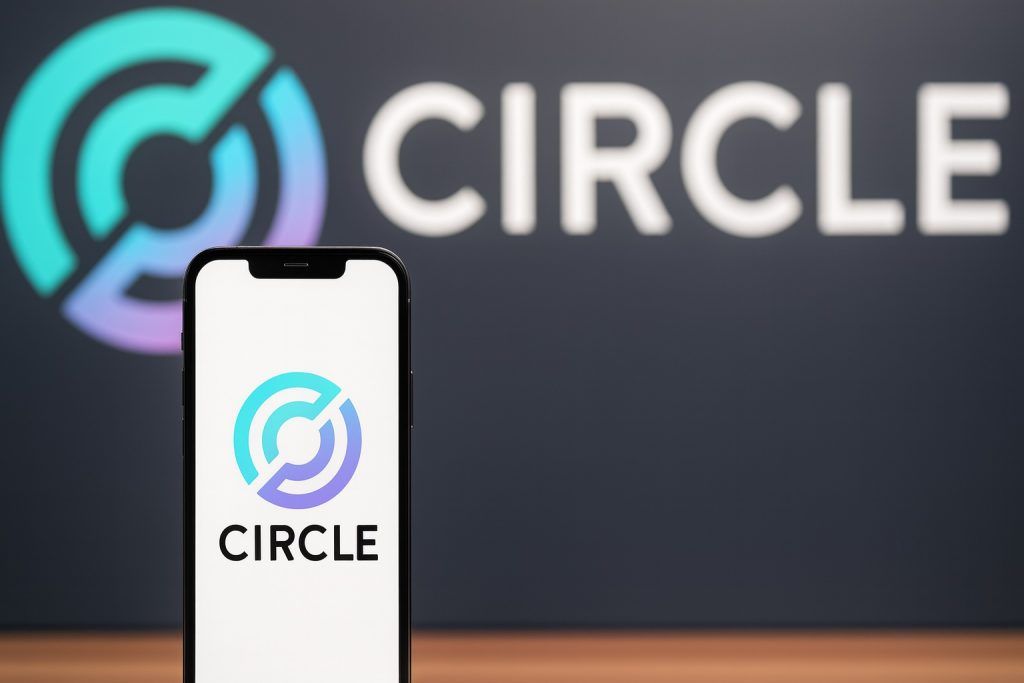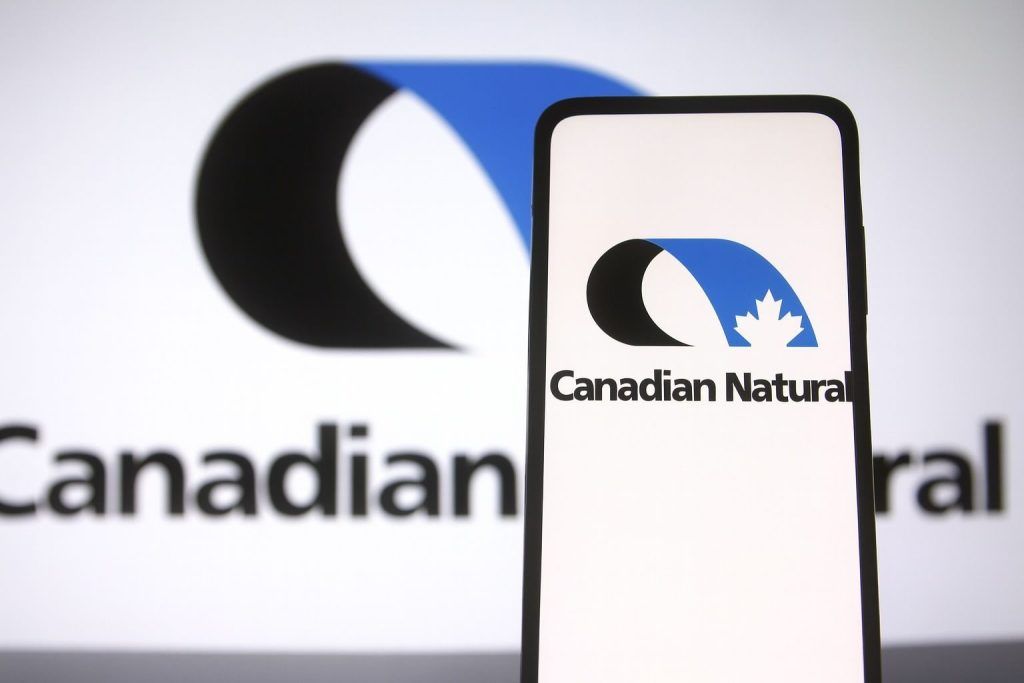- Price & Trend: As of Oct 10, 2025, MMM closed around $148.75, down ~2.7% on the daytradingview.com. This marks a ~6.4% drop from a week prior (though shares are still up ~10.6% over the past year)tradingview.com. The 52-week range is ~$122–$164. (3M’s market cap ~$79–82B1 .)
- Recent News: In early Oct, Bloomberg reported 3M is exploring selling billions in low-growth Industrials assetsnewsquawk.com. Other recent headlines: 3M’s May NJ PFAS settlement (≈$285M charge)investors.3m.com; a positive tax court ruling in Oct 2025 (reversing ~$23.7M in Brazilian royalty reallocation)tpcases.com; and the upcoming Q3 2025 earnings call (Oct 21). On Aug 15, 2025, 3M’s board declared a $0.73 quarterly dividend (Q3)investors.3m.com, continuing 100+ years of payouts.
- Analyst Sentiment: Analysts are cautiously optimistic. Consensus is a “Moderate Buy” with an average target around $164–165marketbeat.com. Weiss Ratings reiterated a Buy (B-) on Oct 8marketbeat.com, and some brokerages have boosted targets (Barclays ~$170, Wells Fargo ~$176)marketbeat.com. By contrast, some analysts warn MMM is expensive: one model notes a ~22× P/E and limited upside to its ~$162.81 avg. targetdailyforex.com2 .
- Financials: In 2024, 3M generated $24.58B in revenue (nearly flat YoYinvestors.3m.com) and $4.01B net income (continuing ops), for ~16% net margininvestors.3m.com. 2024 EPS was about $7.28 (continuing ops)investors.3m.com. Q2 2025 (reported July) saw adjusted EPS $2.16 (up 12% YoY, beating $2.01 est.) on $6.16B sales (+1.4% YoY)marketbeat.com. 3M carries roughly $11.1B long-term debt (2024 year-end)investors.3m.com, a D/E ≈2.87marketbeat.com. Operating cash flow turned slightly negative in Q2 (–$1.0B GAAP) due to working-capital swings and litigation payments3 .
- Dividend & Returns: Quarterly payout is $0.73 (Q3 2025)investors.3m.com, unchanged from earlier 2025. At current prices, yield is roughly 1.9%. Management has pledged over $10B to shareholders in 2025 via dividends and buybacksfinimize.com, reflecting a commitment to return capital.
- Business & Peers: Post-April 2024 spin-off of its Healthcare unit (now Solventum)investors.3m.com, 3M’s main segments are ~45% Safety & Industrial, 34% Transportation & Electronics, and 20% Consumerfinimize.com. 3M boasts ~55,000 patents and a heavy R&D focusfinimize.com. Valuation-wise, MMM trades at ~20.6×earningsfullratio.com, slightly below peers. For example, Honeywell’s P/E is ~22.7×fullratio.com, while GE is much higher (~40×)fullratio.com, reflecting different growth profiles.
- Sentiment: Market sentiment is mixed but cautiously positive. Finimize notes analysts are mostly “hold/neutral” with price targets $150–$165finimize.com, and volatility modest (β~1.27tradingview.com). Institutional ownership (~70%finimize.com) and mild short interest (~2.5%finimize.com) suggest patience. Key risks remain legal (PFAS, earplugs), sluggish top-line growth, and leverage4 .
Stock Price & Recent Performance
3M’s stock has been trading in the low-to-mid $150s this autumn. As of Oct 10, 2025, it closed near $148.75tradingview.com. That day’s drop (~–2.7%) came amid broad market pullback. Over the past week MMM has slid roughly –6.4%tradingview.com, reversing part of its earlier gains. (Year-to-date MMM was up ~10.6%tradingview.com, roughly in line with the S&P 500.) The 52-week trading range is about $122–$164, with 50-day and 200-day moving averages near $154 and $149 respectively1 .
Technical indicators show MMM recently lost some momentum. Chart analysis highlights a support zone around $146–147 and resistance near $156–167. For example, AI-driven signals mark current support ≈$146.6 and resistance at $156.8 and $166.7news.stocktradersdaily.com. (See figure below.) An embedded chart illustrates MMM’s price (blue) relative to these support (green) and resistance (red) levels:
Traders point out that MMM is slightly below its 50-day moving average, and near the lower end of its multi-month range. A breakdown below $146 could trigger more selling; conversely, a break above $157–160 might reignite bullish sentiment. Recent volume has been modest, suggesting indecision.
Recent News & Developments
Litigation and Settlements: A major overhang for 3M has been environmental/health lawsuits (PFAS “forever chemicals” and earplug litigation). In May 2025, 3M announced a settlement resolving New Jersey PFAS cleanup claims, agreeing to pay about $285 millioninvestors.3m.com (taken as a pre-tax charge in Q2). This deal was seen as positive by some analysts, as it narrows that particular liability. (Notably, earlier PFAS actions – e.g. Minnesota’s suits – continue.) 3M remains on track to exit PFAS manufacturing by end-2025 (a plan announced in 20225 ).
On the earplug front, 3M’s 2022 settlement of ~$6B has proceeded through courts; in early Aug 2025 a new update noted ~$2.75B already paid, with no major change in outlook. (No fresh news in the past week on earplugs.)
Regulatory/Legal: In early Oct, a U.S. appeals court rejected the IRS on a long-running tax case: it reversed a Tax Court ruling that had attempted to reallocate $23.7M in Brazilian royalties to 3Mtpcases.com. The appellate court held 3M’s Brasil subsidiary legally couldn’t pay extra royalties, so the IRS adjustment was unwarranted. This clears up an old liability (2006-07 issue) in 3M’s favor.
Strategic Actions: Outside litigation, Bloomberg (citing sources) reported Oct 3 that 3M is weighing a multi-billion carve-out of part of its Industrials divisionnewsquawk.com. This would involve selling or spinning off lower-growth businesses to streamline the portfolio (and possibly raise cash for litigation reserves or acquisitions). No formal announcement yet, but investors will watch for more details.
3M continues its restructuring and spin-off initiatives. Recall that on Apr 1, 2024 the company completed the spin-off of its health care unit (now independent Solventuminvestors.3m.com). That left 3M focused on Safety & Industrial, Transportation/Electronics, and Consumer segments. In 2022 it also exited the Food Safety division (merged with Neogen). Management, under CEO Bill Brown, has cut thousands of jobs and implemented cost-savings (the “3M eXcellence” program), boosting margins6 .
Earnings: The last report (Q2 2025, July 18) was mixed. Sales were $6.30B (up ~1.4% on a GAAP basis), and adjusted EPS $2.16 (+12% YoY, beating the $2.01 consensus)marketbeat.com. Gross and operating margins improved (adj. operating margin ~24.5%, +290bpsinvestors.3m.com). However, GAAP EPS was only $1.34, down 38% YoY, due to after-tax charges (from the PFAS settlement and other items)investors.3m.com. 3M raised full-year guidance modestly to $7.75–$8.00 in adj. EPS7 .
Dividends: The board reaffirmed 3M’s dividend. On Aug 15, 2025 it declared the Q3 dividend at $0.73/shareinvestors.3m.com, payable in Sept. That matched Q1/Q2 payouts. This continues 3M’s record of uninterrupted dividends for over 100 yearsinvestors.3m.com. The payout plus ongoing buybacks (over $10B planned in 2025finimize.com) reflects a commitment to shareholder returns despite high debt. (3M’s debt/equity is ~2.87marketbeat.com, and credit ratings are non-investment grade, but steady.)
Product News: There were no blockbuster product launches this week. 3M steadily launches new adhesives, abrasives, and safety products. Analysts note that new product introductions have accelerated (32% more launches in late 2024finimize.com) and are concentrated in higher-margin categories. 3M also continues to seek growth via pricing and emerging markets.
Financial Fundamentals
3M’s fundamentals reflect a stable but slow-growth industrial conglomerate. Revenue: $24.58B in 2024, roughly flat vs 2023investors.3m.com. (Note: divestitures and the healthcare spin-off lowered comparables.) Profitability: 2024 operating income ~$4.82Binvestors.3m.com, net income $4.01B on continuing operationsinvestors.3m.com, yielding ~16% net margin. Full-year GAAP EPS (continuing ops) was about $7.28investors.3m.com, nearly unchanged vs 2022 (2023 had a large loss due to impairments).
For Q2 2025, the adjusted results show improving margins: adj. operating profit margin 24.5% (+290bps YoY)investors.3m.com. The company’s gross margins and returns on capital are strong (ROIC ~28%finimize.com). Cash flow is solid on an adjusted basis (free cash flow ~$1.3B in Q2finimize.com), though GAAP operating cash dipped due to working-capital swings and legal payments.
Debt: 3M has been borrowing to fund buybacks and settlements. As of Dec 2024, long-term debt (excl. current portion) was ~$11.1Binvestors.3m.com. (Including short-term borrowings, total debt was ~$13.0B.) That’s lower than 2023’s $13.1B, as 3M paid down some obligations. The company’s debt/equity (~2.9) is high for industrials. Interest coverage remains adequate, however. (Any PFAS cash payments extend over decades; 3M believes the structured payment schedule is manageable.)
Valuation: 3M trades at about 20–21× trailing EPS (P/E ~20.6×fullratio.com), and forward P/E ~20.8×finimize.com. This is slightly below the S&P 500 (~26×) and on par with large industrial peers. It has an EV/Sales ~3.7×finimize.com. These ratios are somewhat below 3M’s historical norms (because of litigation risk)finimize.com. Analysts expect low-single-digit revenue growth (mid-to-high single-digit EPS growth) over the next few years – e.g. forecasts peg EPS around $7.80 in 2025 rising to $9.00 by 2027finimize.com if targets are met. Profit margins are the key variable: management aims for ~25% operating margin by 2027finimize.com, which would drive higher cash flow.
Technical and Fundamental Analysis
Technically, 3M’s chart has been choppy but with a slight upward bias over the past year. AI-driven analyses highlight neutral to bullish signals over different timeframes. For instance, one technical model notes neutral near- and mid-term conditions but a strong long-term bullish setupnews.stocktradersdaily.com. Current price (~$149) is just below key resistance (~$156–157) and above identified support (~$146–147)news.stocktradersdaily.com. A successful breakout above $157 could target $160–$167 in the weeks ahead, whereas a break below $146 might test lower pivots. Indicators like RSI have hovered near neutral. Trading volumes have not shown clear bias, keeping sentiment mixed.
On fundamentals, analysts emphasize margin improvement and cash returns. The recent margin gains (Q2 operating margin 24.5%) demonstrate management’s cost cuts paying offinvestors.3m.com. If 3M can sustain higher margins and grow sales even modestly, earnings could steadily improve. However, concerns persist about growth: 3M’s organic sales in Q2 were only +1.5%finimize.com and consumer spending softness (post spin-offs) is a headwind. The company does have pricing power in specialty markets, which partially offsets inflation.
Several analysts note 3M is currently valued conservatively. As Finimize observes, MMM’s forward P/E ~20.8× is about 20% below the broader marketfinimize.com, reflecting discount for legacy risks and lower growth. By comparison, Honeywell’s forward P/E is slightly higher, and GE’s is much higher. At current levels, some models suggest the risk/reward is skewed favorably: one quantitative signal gives a ~22.9:1 upside/downside ratio (targeting +6.6% vs –0.3%)news.stocktradersdaily.com. In short, if litigation fears diminish and margins hold up, 3M’s stock could outperform; but if global demand slips or legal costs rise, the downside risks are also meaningful.
Business Model & Segments
3M is a diversified science/technology conglomerate. Its three core businesses (post-healthcare spin-off) are:
- Safety & Industrial (~45% of sales): Includes abrasives, adhesives, tapes, personal protection gear, filtration, etc. (3M is a market leader in many industrial materials.)
- Transportation & Electronics (~34%): Products for automotive, aerospace, electronics assembly, audio, and digital imaging (this includes 3M’s involvement in car electronics and consumer 3D structures).
- Consumer (~20%): Includes products like Post-it® Notes, Scotch® tapes, consumer car-care products, and home improvement supplies.
These splits are roughly from 2024 datafinimize.com. (Previously the healthcare division was a fourth pillar; it was spun off in April 2024 as Solventuminvestors.3m.com.) Management emphasizes innovation and R&D as 3M’s “secret sauce.” With ~55,000 active patentsfinimize.com, 3M invests heavily in new product development, often in higher-margin niches (e.g. healthcare, electronics). This broad portfolio helps 3M weather sector-specific downturns, though it also means it grows slowly in any one area.
In recent years 3M has reshaped its portfolio: it sold its Food Safety division in 2022 (merging it with Neogen), and completed the health care spin-off in 2024. The pattern suggests 3M is now more focused on industrial markets. Management has also launched global cost-cutting programs (“3M eXcellence”) and reduced the corporate footprint to improve profitability6 .
Competitive peers include other industrial conglomerates. 3M’s R&D intensity and product breadth are strengths versus smaller firms, but it lags companies in higher-growth niches. Honeywell, Emerson Electric, and DuPont are often cited as peers (many investors compare MMM to HON). Compared to these, 3M’s growth is slower, but its margins and returns can be comparable.
Peer Comparison
In valuation and fundamentals, 3M is roughly in line with large industrial peers. As noted, 3M’s P/E (~20.6×) is slightly lower than Honeywell’s (~22.7×)fullratio.com. General Electric’s P/E (~40×) is much higherfullratio.com, reflecting GE’s faster growth areas (renewable energy, aviation, etc.) and smaller share count. Johnson & Johnson trades around 20×fullratio.com as a diversified tech/industrial name, similar to 3M.
Operationally, 3M’s return on invested capital (ROIC ~28%)finimize.com is among the best, surpassing peers. But its revenue growth is more sluggish. For example, Honeywell has seen faster organic growth recently (thanks to aerospace recovery) and therefore often gets a premium. On dividends, 3M’s ~1.9% yield is lower than Honeywell’s (~2.2%) and GE’s (~2.5%), reflecting differences in payout ratios.
Analysts note that, unlike many peers, 3M has significant legal “tail risks” which peers largely do not (e.g. DuPont has its own legacy liabilities but different profile). Hence MMM often trades at a valuation discount to pure-play industrials and materials companies. However, its diversification into consumer and healthcare spin-off gives it some defensive character similar to consumer staples.
Overall, investors see 3M as a mature, cash-generative industrial, offering a safer dividend than cyclicals like GE or EMR, but with heavier litigation/drugstore baggage than peers like Intel or Caterpillar.
Market & Investor Sentiment
News media and analysts reflect balanced sentiment. As noted, Weiss Ratings (via MarketBeat) reiterated a bullish Buyrating on Oct 8marketbeat.com. Major brokerages have “Overweight/Buy” calls and targets in the $170–185 rangemarketbeat.com. Investor surveys (via Finimize) show quietly positive sentiment: technical indicators are nearly flat and analysts lean neutral, with median targets in the $150–165 band8 .
Conversely, independent commentators urge caution. The DailyForex technical piece labeled MMM “expensive vs peers” (P/E 22.0 vs industry avg) and highlighted “red flags” like shrinking cash flow and compressing marginsdailyforex.comdailyforex.com. This view notes the risk of a profit slowdown if end markets weaken.
In recent trading, there’s been little bullish hype – institutional investors hold ~70% of shares, and insider selling (e.g. a few board directors) is modest but visiblemarketbeat.com. Social media chatter is muted; MMM is often seen as a “value” or “recovery” play.
In sum, public sentiment is neutral: many long-term holders believe 3M’s turnaround efforts (debt paydown, margin cuts) will work, but a significant faction is waiting for clearer signs of durable growth. News of a high-profile asset carve-out or a beat-and-raise earnings report could swing the mood quickly in either direction.
Sources: Company filings and press releases (3M IR site) and reputable finance outlets as cited (Investing.cominvesting.cominvesting.com, MarketBeatmarketbeat.com, TradingViewtradingview.com, Finimizefinimize.comfinimize.com, etc.), along with expert analysis sites (DailyForexdailyforex.comdailyforex.com, StockTradersDailynews.stocktradersdaily.com) and official 3M financial statementsinvestors.3m.cominvestors.3m.com. (Figures derived from these sources.)

